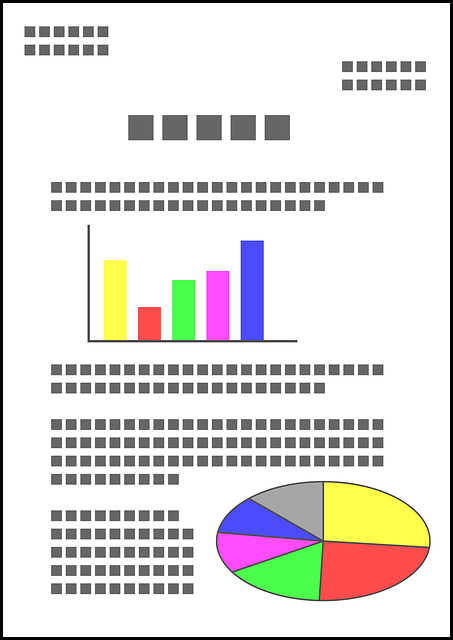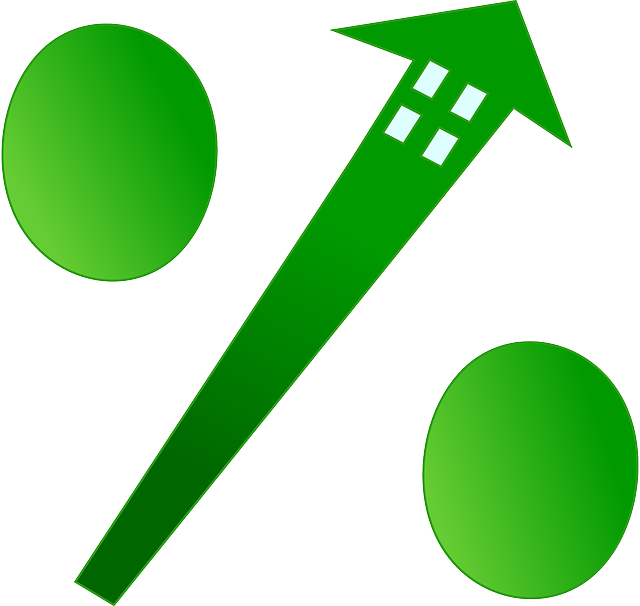What Happens to Real Estate in a Recession: Advice for Realtors
Recessions can be intimidating, especially when it comes to the world of real estate. However, understanding what happens to real estate in a recession can empower you to make informed decisions and seize potential opportunities. Are you ready to discover the secrets of navigating the real estate market during a recession? Let’s dive in and explore the impact of a recession on the housing market, strategies for investing, and the crucial role of real estate agents in helping clients adapt to changing market conditions.
Key Takeaways
Understanding the impact of a recession on real estate requires an analysis of local markets and Federal Reserve policies to determine varying effects.
Investing in diverse assets and focusing on resilient industries such as healthcare, technology, and consumer staples are key strategies for real estate investing during a recession.
Real estate agents must employ strategies to overcome the challenges of a recession in order to continue providing quality service to their clients.
Understanding the Impact of a Recession on Real Estate

A recession can have wide-ranging consequences on the housing market, such as fluctuations in property values, changes in demand, and potential investment opportunities. The Federal Reserve plays a crucial role in influencing the housing market during economic downturns, primarily through its control of interest rates. Economic research shows that local markets can vary greatly, with some regions experiencing more significant declines in home prices and demand than others during a recession.
How can we decipher these diverse market conditions?
Property Values and Demand

During a recession, property values and demand may diminish due to economic insecurity and weaker buyer demand. Diversifying your investments into different asset classes, such as rental properties and commercial properties, can help mitigate risk and generate income during an economic downturn.
However, keep in mind that local markets can have substantial differences. The Special Housing Risk Report by ATTOM Data identifies the nation’s most vulnerable housing markets based on home affordability, unemployment, and other economic indicators, such as median gross income. This information helps real estate agents and investors alike understand the factors that can boost or damage local housing markets, such as unusually high homeownership costs, foreclosures, and relatively weak homeowner equity.
Investment Opportunities
A recession can open the door to investment opportunities in real estate, such as lower prices, increased potential for negotiation, and reduced competition. Savvy real estate investors can find stability and growth during a recession by focusing on resilient industries, like healthcare, childcare, multifamily rentals, e-commerce, and accounting.
The trough of the market, when prices are at their lowest, is considered the most opportune time to invest. Acquiring a discount fixer-upper during a recession can provide added inherent equity, which can be beneficial in enduring the economic downturn.
Investors should be careful not to become overleveraged in their personal finance, as meeting debt obligations during a recession can pose a challenge.
Strategies for Real Estate Investing in a Recession

When it comes to real estate investing during a recession, two primary strategies emerge: diversifying your portfolio and concentrating on industries that are resilient to economic downturns. Diversifying your portfolio signifies investing in various kinds of assets to mitigate risk and amplify returns. By focusing on resilient industries such as healthcare, technology, and consumer staples, investors can further safeguard their investments during turbulent times.
Let’s further examine these two strategies.
Diversifying Your Portfolio
Geographical location is of great importance in real estate investment diversification, as it can aid in lowering risk and augmenting returns. By investing in different geographic regions, you can balance the potential impact of drastic changes in a single market.
Moreover, diversifying your investments across industries can help lessen the effect of a recession on your overall portfolio. By taking into account various property types, locations, and industries, you can decrease risk and enhance returns in your real estate investments.
Focusing on Resilient Industries
Resilient industries are those that tend to remain stable or even experience growth during an economic downturn. These industries are less affected by changes in consumer spending and provide a buffer for your portfolio. Examples of resilient industries include:
Healthcare
Childcare
Multifamily rentals
E-commerce
Accounting
Concentrating on robust industries can be a beneficial approach for the average real estate agent, and for investors alike, during an economic downturn, allowing for more stable returns and growth potential.
The Effects of Rising Interest Rates on Real Estate

Rising interest rates during a recession can have a significant impact on the real estate market as interest rates rise. Higher interest rates can lead to increased mortgage rates, making it more challenging for buyers to purchase homes and potentially decreasing demand. Additionally, rising interest rates can affect buyer preferences, such as a shift towards more affordable housing options or a focus on properties in stable industries.
What specifically transpires with mortgage rates and affordability during a recession?
Mortgage Rates and Affordability
An increase in interest rates during a recession can have an impact on mortgage affordability by increasing the monthly payments for a loan of the same amount. Higher mortgage rates make it more difficult for buyers to purchase homes, thereby potentially decreasing demand.
A recession can also lead to changes in buyer preferences, as buyers may opt for more affordable properties or lower-priced markets to lessen the effect of higher interest rates. This could result in increased demand for entry-level homes or areas with lower housing costs.
Changing Buyer Preferences
During a recession, buyer preferences may shift towards more cost-effective housing options or concentrating on properties in secure industries. Buyers may prioritize saving for a larger down payment or enhancing their creditworthiness, which could cause a delay in purchasing decisions as they work towards improving their financial position.
Additionally, buyers may prefer fixed-rate mortgages over adjustable-rate mortgages to secure a lower interest rate for the long term, providing stability and predictability in monthly mortgage payments even if interest rates continue to rise.
Navigating the Housing Market During a Recession: Tips for Buyers and Sellers

Navigating the housing market during a recession requires different strategies for homebuyers and sellers. For buyers, it’s crucial to consider factors such as budget, income stability, and emergency funds when deciding whether to buy a house during a recession. On the other hand, sellers should be prepared for potential price drops and increased competition and may need to adjust their expectations and strategies accordingly.
Let’s delve into some advice for both buyers and sellers amidst these uncertain times.
For Homebuyers
When deciding whether to buy a house during a recession, homebuyers should take into account factors such as budget, income stability, and emergency funds. A recession may present advantages such as reduced competition, lower prices, and increased negotiating power. However, these benefits must be balanced against the potential risks and challenges of purchasing during an economic slump.
For instance, if you do not anticipate remaining in the home for a minimum of five years, purchasing at this time may result in a financial loss should the market decline and you wish to sell.
For Home Sellers
Home sellers should be prepared for potential challenges during a recession, including:
Potential price drops
Increased competition To adjust to these conditions, sellers should consider:
Monitoring the market vigilantly for potential openings
Giving the house a cosmetic update
Being realistic about what can be amended
Being willing to make price concessions
Sellers must realize that housing prices may drop during a recession, but proactive measures and adaptation to the shifting market conditions can enhance the likelihood of a successful sale.
The Role of Real Estate Agents in a Recession

Real estate agents play a crucial role in helping clients navigate the challenges of a recession. Agents can provide valuable guidance to both homebuyers and sellers, offering advice and support during uncertain times. However, real estate agents may also face their own set of challenges during a recession, such as lower commissions, increased competition, and a slower housing market.
So, what strategies can real estate agents employ to overcome these challenges and continue providing top-notch service to their clients?
Challenges for Real Estate Agents
Real estate agents may face challenges such as lower commissions, increased competition, and a slower housing market during a recession. The abundance of competition for the same business renders it difficult for an agent to attain a livable wage.
During a recession, agents may need to be more proactive in searching for clients and marketing their services, as well as being prepared to offer lower commissions to attract business.
Adapting to the Recession
To adapt to a recession, real estate agents may consider:
Adjusting their marketing strategies
Focusing on resilient industries
Providing valuable guidance to clients during turbulent times
Specializing in niche markets
Evaluating market sectors with growth potential
Exercising patience and discipline in investments
Concentrating on rental real estate
Vigilantly monitoring portfolio performance
Most dedicated real estate agents can maintain their exceptional service during a recession by being proactive and adaptable, assisting clients to navigate the challenges of the housing market and capitalize on potential opportunities. Acquiring real estate licenses ensures they have the necessary knowledge and skills to do so.
Summary
In conclusion, understanding the impact of a recession on the housing market, as well as the strategies for real estate investing and the role of real estate agents, can empower individuals to make informed decisions during uncertain times. By considering factors such as property values, demand, investment opportunities, and buyer preferences, both homebuyers and sellers can navigate the challenges of the housing market during a recession and potentially seize opportunities for growth.
By proactively adapting to the changing market conditions and focusing on resilient industries, real estate agents can provide exceptional service to their clients, helping them make the most of the opportunities that a recession may present. So, whether you’re a homebuyer, seller, or real estate agent, remember that knowledge is power – and by understanding the intricacies of the housing market during a recession, you’ll be better equipped to face the challenges and seize the opportunities that lie ahead.
Frequently Asked Questions

Does real estate do well in recession?
Real estate can often provide a good hedge during recessions since home prices tend to fall, and mortgage rates remain low. This makes it possible for people to take advantage of attractive bargains and secure lower payments on properties.
Is it better to have cash or property in a recession?
In a recession, it is best to hold cash as it provides a reliable emergency fund in case of a job loss or other financial hardship.
Will home prices drop in 2023 recession?
Experts predict that U.S. home prices are likely to decline slightly in 2023, with the average rate of decrease estimated at around 3.5%. This is largely because of affordability issues faced by potential buyers and an overall softening of housing markets. However, a major crash in the housing market is not expected.
Will I lose my house in a recession?
In general, your house is unlikely to be directly affected by a recession. There may be an indirect effect on the home’s value or income, but it can also create opportunities for refinancing or buying a home.
How likely is a recession in 2023?
Given that the chance of a recession in 2023 has dropped to 33%, it appears unlikely that a meaningful downturn will occur by then.







